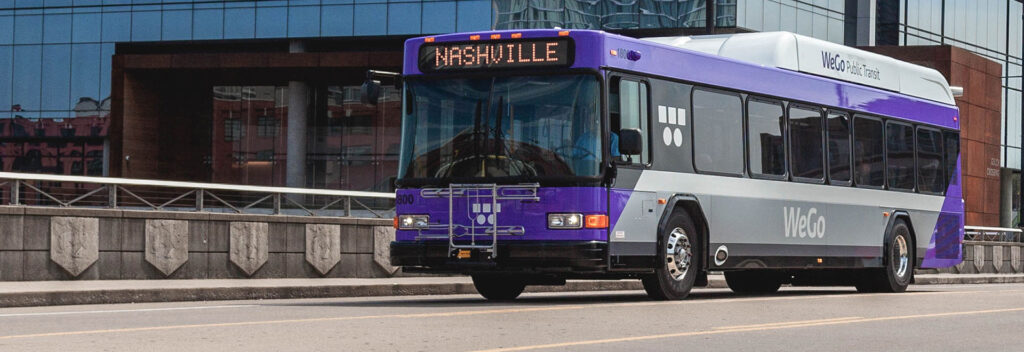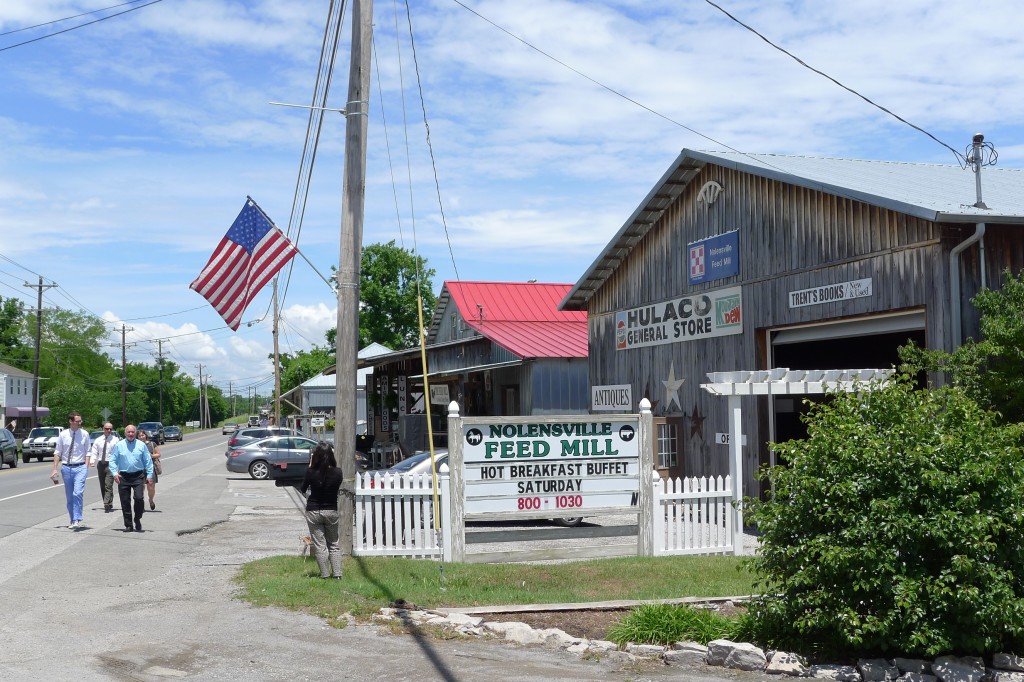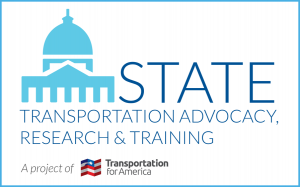
Tennessee charting a course to make streets more dangerous & hamstring local authority

A bill moving through the Tennessee legislature would severely curtail local control and authority over transportation spending, result in more dangerous streets, and prevent cities and towns of all sizes from investing in the wide range of transportation options that are key to their economic prosperity.

Sidewalks would be useful here on Nolensville Rd, a state highway that’s also a local street through Nolensville, TN southeast of Nashville. A new Tennessee law could prevent state gas tax dollars from being used to add them.
Less than a year after passing a statewide complete streets policy, at least two Tennessee state legislators are spearheading a fairly shocking legislative effort to curtail the flexibility that the state, cities and counties have to invest in the diverse types of transportation options that are demanded by their citizens and supported by scores of state and local elected leaders from across the state.
HB 1650 (with a companion in the Senate), as originally introduced and intended, would entirely ban the use of state gas tax revenue for building any sidewalks (even as part of a larger road project), bike lanes and trails, or other similarly cost-effective and popular projects to help make traveling on foot or by bike safer and more convenient.
But this bill goes further than a restriction on the projects that the Tennessee Department of Transportation plans and builds itself, however.
The bill would also narrowly restrict how a city or county could invest their share of gas tax dollars they receive back from the state. This bill would curtail the freedom and control communities of all sizes currently enjoy to invest these dollars however they choose.
Tracking state policy & funding
This bill is just one of many pieces of state legislation that we are tracking closely as part of our new resource on state transportation policy & funding.
Visit our refreshed state policy bill tracker to see current information about the states attempting to raise new funding in 2016, states attempting to reform how those dollars are spent, and states (like Tennessee) taking unfortunate steps in the wrong direction on policy.
Tracking state policy & funding
This bill is just one of many pieces of state legislation that we are tracking closely as part of our new resource on state transportation policy & funding.
Visit our refreshed state policy bill tracker to see current information about the states attempting to raise new funding in 2016, states attempting to reform how those dollars are spent, and states (like Tennessee) taking unfortunate steps in the wrong direction on policy.
The bill has been opposed thus far by TDOT, in part because it would have a dramatic impact on safety and could prevent them from meeting decades-old, basic ADA requirements that require crosswalks and curb ramps and other basic safety and accessibility features — which could also jeopardize future federal funds for the state. While there’s potential for the bill to be amended to address the ADA issue and possibly allow sidewalk construction to some degree, the legislators appear to be intent on preserving the outright restriction of state funds for any on-street or off-street bike lanes or trails.
It’s a misguided attempt to save a state money, but considering that only about one percent of the entire state transportation budget goes to projects that make walking or biking safer or more convenient, it’s akin to trying to save money on your power bill by unplugging a single light bulb while running the AC at 60 degrees all summer.
The kicker is that Tennessee is already a national leader on evaluating proposed projects to find savings (or waste) and maximize the benefits of each dollar. We profiled them as a model to emulate in our recent report on smart state policies other states should consider:
In 2012, the Tennessee DOT (TDOT), in partnership with Smart Growth America, found that many transportation projects in its program could be redesigned to achieve 80-90 percent of benefits for as little as one-tenth of the initial proposed cost. After reviewing just the first five projects, TDOT found a cost savings of over $171 million through right-sizing the scope of work. In one project in Jackson County, TDOT was able to reduce the overall cost from an estimated $65 million to just $340,000 while still achieving the same safety and efficiency outcomes. As a result, TDOT has saved billions of dollars and stretched its limited resources even further (the state’s 21.4 cent per gallon gas tax was last raised in 1993, and the state operates its transportation program on a pay-as-you-go basis).
Check that math again: By re-scoping just one project, TDOT saved over $64 million dollars — equivalent to almost four full years of current state funding for safer streets and sidewalks.
There are indeed savings to be found, but curtailing local control and flexibility and making streets less safe for Tennesseans isn’t the solution.
TDOT’s leaders are already on board with awarding a small fraction of their budget — about half a percent of the state’s budget — to build a well-rounded transportation system, and they see how it supports the economic prosperity of the state and the safety of all citizens.
The state created a new Multimodal Access fund in 2013, which has competitively awarded about $10 million annually (out of a $1.8 billion annual budget) to “fund infrastructure projects that support the transportation needs of transit users, pedestrians, and bicyclists by addressing gaps along the state highway network,” according to TDOT.
“Our responsibilities as a transportation agency go far beyond building roads and bridges,” TDOT Commissioner John Schroer said in their release for the 2015 grant awards. “Providing safe access for different modes of transportation ultimately creates a more complete and diverse network for our users. These projects are also extremely cost effective, which allows TDOT to make improvements in more areas across the state.”
The sponsors of the bill appear to be unaware of the potential impacts on public safety, the growing public support for these projects, or the sizable economic benefits these projects can bring. HB 1650 would not only end this small multimodal state grant program that’s supported smart, cost-effective projects (chosen on the merits) from across the state, but would also put an incredible burden on local governments by essentially requiring them to self-fund even the most basic sidewalk components of road-related projects.
Amy Benner, a Knoxville-based bike attorney and board member at Bike Walk Tennessee, talked to Streetsblog last week about the bill.
“Our concern is that it prevents localized communities from doing what they want to with their roadways. The way it’s currently written is going to potentially prevent projects that have already been researched and approved and the communities support and mayors have signed off on from happening.”
It’s shocking to contrast this with other forward-looking places that are scrambling to invest in a wide range of transportation options to grow their economies, attract talent, improve mobility and double down on the unique qualities that makes their cities successful.
Scores of cities are enjoying the economic returns of investing in a broader range of transportation options, whether the bus rapid transit systems in medium-sized cities, the massively successful bikesharing systems in cities large and small, the Cultural Trail in Indianapolis or the inspiring Atlanta Beltline in-town trail network that’s been a boost to the local economy.
It’s incredibly discouraging to see Tennessee legislators trying to turn back the clock by making it harder for the state, cities and counties to build safer streets, kneecapping their ability to stay economically competitive in the process.
It’s a “cure” that will only kill the patient.
—
This story is part of the work of T4America’s START Network — State Transportation Advocacy, Research & Training — for state elected leaders and advocates working on similar state issues.




